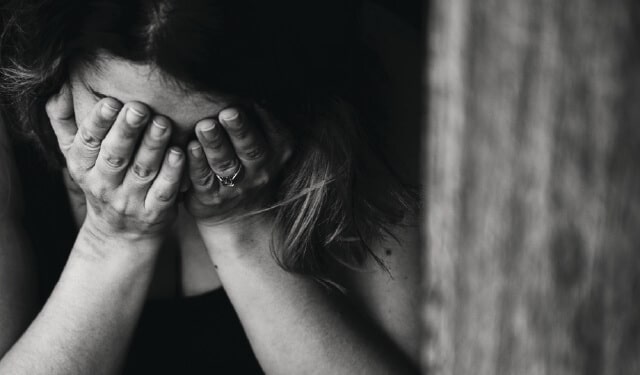People in true recovery — beyond the physical act of not drinking or using, and in true emotional recovery — are easy people to be around. In the greatest of paradoxes, they, the wounded healers, have found strength through their weakness. They have learned wisdom not from doing it right, but from doing it wrong.
The Cycle of Stress and Drinking
Bev is a medical professional in her 50’s who came to the Coleman Institute for Addiction Medicine for an outpatient alcohol detox in Richmond, Virginia. She now has a little more than six months of not drinking under her belt.Bev was what she called, a “normal drinker” for many years. She started drinking in college and enjoyed partying. She and her husband have two daughters and she did not drink during her pregnancies, but as the pace of life and the stress of being in management in a busy medical setting grew, so did her drinking.
She would wake up in the morning with a strong resolve not to drink. She never missed work because of her drinking, but almost always started her day with a dullness from the previous night’s drinking. Extremely busy at work and with children’s after school activities (pre-COVID-19), she started thinking about her ‘reward’ of a drink and to de-stress as she drove home each evening. She told me she basically ran into the kitchen and uncorked a bottle before taking off her coat. As she prepared the evening meal and listened to her kids recounting their day, she easily drank 3 big glasses of wine.
Warning Signs It’s More Than a Bad Drinking Habit
When her husband got home from work, Bev said she would often open a new bottle of wine to create the illusion this was her first drink of the evening. Her consumption grew to an average of one and a half bottles of wine a night, but it was easily two on the weekends. She hid not only the bottles of wine she bought, but would take the empties to a trash receptacle away from their home.Her sleep was awful, her temper was bad. She grew intolerant of the people with whom she worked. When COVID-19 hit, she told me, “I had a meltdown.”
She started working a few days a week from home and uncorked her first bottle by 11:00 am. “I was in charge of procuring PPE’s for staff and creating new protocols. Both of my girls were home from school, and my husband’s job was deemed essential as well, so he was not able to be particularly helpful at home…I felt this bipolar sense of terror and relief that Amazon Prime could deliver wine to me every day of the week. Working in the medical field, I was so ashamed of myself. My daughters started noticing my hands shaking in the morning as I dragged myself around the kitchen making coffee. I had to do something. I had known some people who had gone to the Coleman Institute, and I found you online. Thank God.”
Suffering From Alcohol Use Disorder
Fr. Richard Rohr uses the analogy of electricity to describe how a person suffering from whatever pain life has brought him, transforms it into something greater, something useful, something powerful. He says:"Most people are like electric wires: what comes in is what goes out. Someone calls us a name, and we call them a name back. That is, most people pass on the same energy that is given to them. Now compare an electric wire to those big, grey transformers that you see on utility poles. Dangerous current or voltage comes in, but something happens inside that grey box and what comes out is, in fact, now helpful and productive."
Bev is working on a strong program. She has taken advantage of online recovery meetings and agreed to go to an Intensive Outpatient Counseling program (IOP) that our aftercare team helped her find. She has found companionship and compassion, and the tools she is learning through these venues are helping her — much to her surprise and delight — in her own management position. She is truly transforming her suffering into a vehicle of help and hope to others.
Do You Need An Alcohol Detox?
Not everyone needs a medical detox off alcohol, but it can be dangerous to stop drinking abruptly if your body has developed a strong tolerance. Some people have mild to moderate tremors or sweating until they get a drink in their system. It’s important to check with your doctor if you are concerned or unsure.The Coleman Institute for Addiction Medicine in Richmond, Virginia or Wellesley, Massachusetts provides a safe, private, convenient, and welcoming three-day outpatient detox for appropriate patients. If you or a loved one is in need of this service and are ready to try living without alcohol, I encourage you to give us a call at 877-773-3869.
Joan R. Shepherd, NP


